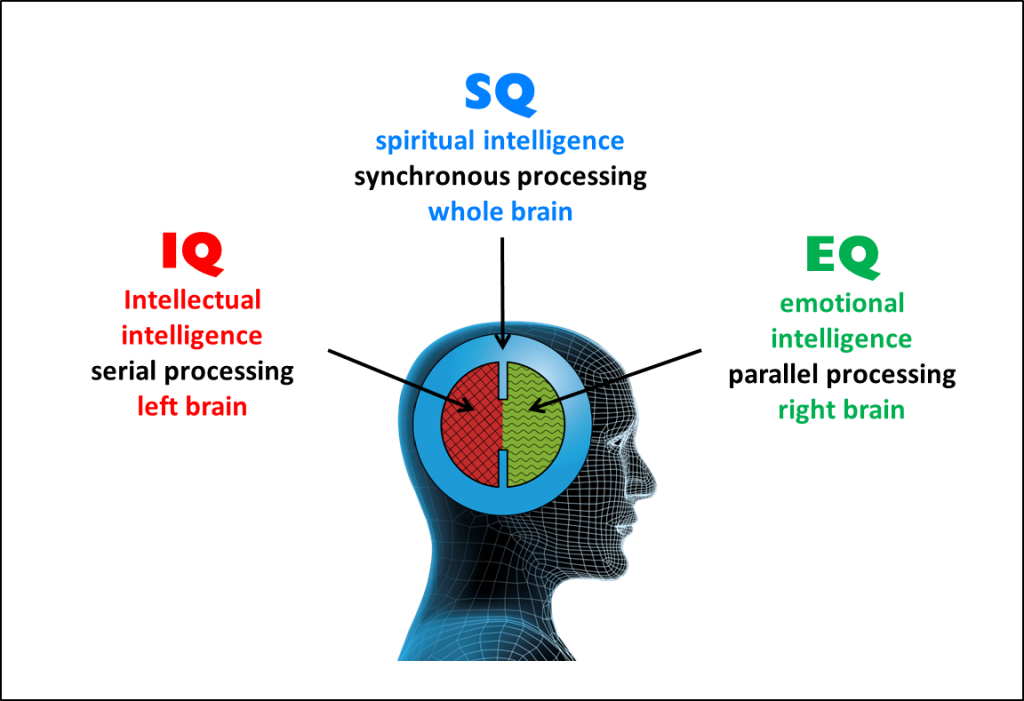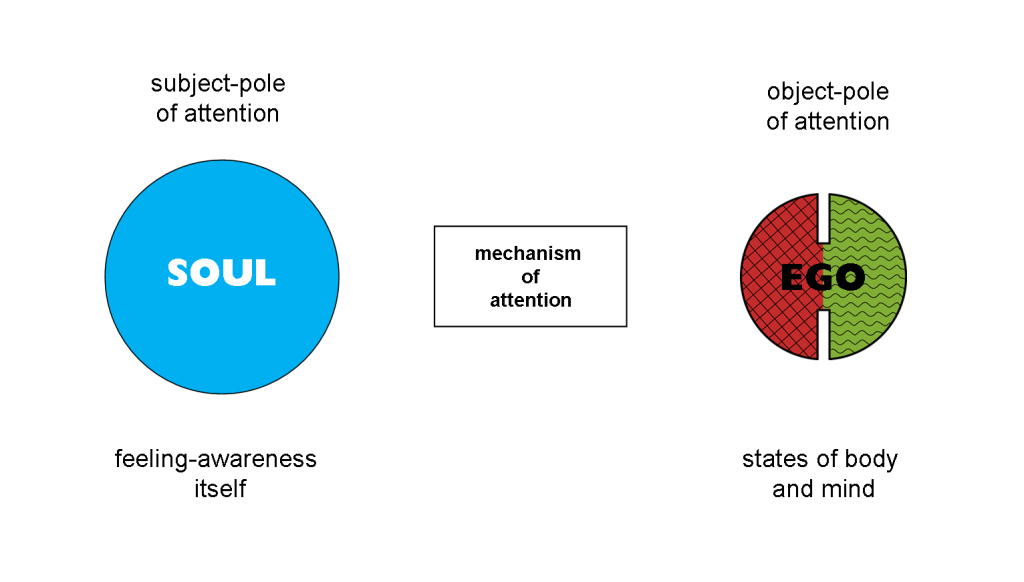From the early 17th century onwards, traditional faith-based theological explanations of reality gave way to empirical explanations based on newly discovered laws of physics. This enormous shift in collective consciousness established scientific materialism as the dominant paradigm of western civilisation. According to this philosophy, which still prevails as the orthodox scientific view today, human beings are nothing more than a bunch of atoms in a complex chemical formula.
Postmodern Despair
This dispiriting philosophy about the ultimate nature of human existence has caused enormous confusion and bewilderment. The official endorsement of this reductionist philosophy by the scientific establishment has installed in collective consciousness a dark vision of existence, based on a sense of ultimate meaninglessness and futility. Much suffering, aberration, and despair has resulted. 20th century literature portrays a pervasive existential malaise. The symptoms are described as alienation (Marx), nausea (Sartre), abandonment (Heidegger), aimlessness (Becket), hollowness (Eliot), and the feeling of being a stranger in one's own land (Camus). The mood of meaninglessness and despair associated with the materialist view of reality is featured in a recent popular film (Whatever Works, 2009, Woody Allen), in which the universe is described as a "cruel, dog-eat-dog, pointless, black, chaos"
Good News
But in contrast to the prevailing existential gloom, there's good news. The reign of scientific materialism is rapidly coming to a close. Although this nihilistic paradigm has dominated collective consciousness for hundreds of years, it is no more permanent than the paradigm it replaced. Just as boldly as materialism took over in the 17th century, it is being superseded in the 21st. Spiritual intelligence (SQ) is emerging as the next stage in the evolution of collective consciousness.
Science of the Soul
The SQ paradigm is based on the science of the soul. The soul is simply dismissed as non-existent by materialist science. Religious belief, on the other hand, situates the soul in a remote supernatural location, accessible to faith alone. But the SQ paradigm identifies the soul at a psychological location, accessible to everyone in their own experience, without relying on religious beliefs.
Spiritual Intelligence
Being the soul is experienced as being feeling-awareness itself, which is located at the subject-pole of attention. This is the ever-present alternative to being the ego, which is experienced as being the body and mind, located at the object-pole of attention. Shifting from the object-pole to the subject-pole of attention creates a corresponding shift from the ego to the soul, which activates the spiritual dimension of intelligence. Spiritual intelligence experiences the qualities traditionally ascribed to the soul, by virtue of the native qualities of feeling-awareness itself, which are experienced at the subject-pole of attention in moments of presence, in the form of wisdom, compassion, integrity, joy, love, creativity, and peace.
Beyond Materialism
The SQ paradigm extends the application of the scientific method beyond the narrow limits set arbitrarily by scientific materialism. By including feeling-awareness itself (or the soul) as the subject of experience, the SQ paradigm goes beyond the hitherto exclusive scientific focus on objects of experience, as required by the philosophical materialism of orthodox science.
Scientific Method
The key principle of the scientific method is that knowledge qualifies as scientific when the relevant facts are observable, verifiable and repeatable. Based on this criterion, the subject-pole of attention is a scientific fact. This is because the subject-pole of attention is observable; it's existence is verifiable both inter-subjectively and neurologically; and it can be experienced repeatedly. Therefore knowledge of the subject-pole of attention qualifies as scientific knowledge. Consequently, withholding scientific recognition from the subject-pole of attention, by limiting the scope of scientific enquiry to objects of attention, applies the scientific method too narrowly. In the process, human beings are defined too narrowly also.
Reduction
Scientific materialism defines human beings exclusively in object-pole terms, composed of atoms, chemicals, and biological structures. Subjective experiences, such as perceptions, thoughts, emotions, beliefs, etc, are defined as electrical discharges in the brain. However, this reduction to the object-pole leaves out the essential element, which is feeling-awareness itself.
Deficiency
Without feeling-awareness itself (or the soul) at the subject-pole of attention, there would be nothing whatsoever at the object-pole of attention, regardless of how many electrical discharges in the brain occurred. There would be no perceptions, thoughts, emotions, or memories, and no observations of atoms or molecules, or any other experiences of body, or mind, or world. Consequently, by reducing human beings to phenomena at the object-pole of attention, scientific materialism leaves out the most important element. Therefore, as a science of human nature, and as a basis for self-understanding, the current scientific understanding of human nature is seriously deficient.
Vital Correction
Nevertheless scientific materialism performed an essential function in its time. In the 17th century it brought an end to unquestioned acceptance of theological explanations of reality. This was an important advance. Religious doctrine had stifled discovery for millennia, by privileging tradition and belief over observation and experience. Establishing the scientific method as the gatekeeper of knowledge was a vital correction.
Over-Correction
However it turned out to be an over-correction, because the scientific method was applied too narrowly, in accordance with the premises of philosophical materialism. This philosophy denies the existence of what is not material, and therefore by definition excludes the subject-pole of attention from scientific recognition. Consequently, when applied with the narrow focus of philosophical materialism, the scientific method provides an incomplete and utterly misleading understanding of human nature.
New Correction
The emergence of the SQ paradigm marks a further correction, bringing to an end the dark age of scientific materialism. As a synthesis of psychology and spirituality, based on the integral science of human nature, the SQ paradigm includes both poles of attention. The experience of spiritual intelligence therefore represents the union of body, mind and soul.
New Paradigm
Spiritual intelligence is the source of personal fulfillment, the means of peak performance, and the key to co-operation, tolerance and peace. In an age of unprecedented global crises of our own creation, coupled with immense potential for improving the quality of life for all, SQ represents an advanced dimension of intelligence whose time has come. SQ is emerging as the new paradigm of the new millennium.
SQ Education
Spiritual intelligence is easy to experience. In fact we all experience SQ spontaneously at times. But spontaneous moments of SQ are rare, and they usually occur at random. Therefore it's important to know how to experience SQ intentionally. The ability to engage your SQ voluntarily, at any time and in any circumstances, converts your spiritual intelligence from a random fleeting experience, into your most valuable personal resource. This video provides step-by-step instructions on how to activate SQ intentionally.
Sources
This article is based on a synthesis of findings from different branches of research, including cognitive psychology, psychoanalysis, transpersonal psychology, and neuroscience. These findings are summarised in the post entitled The Psychology of Spiritual Intelligence.
About Spiritual Intelligence
- Zohar, D., Marshall, I. (2001) SQ: Connecting With Our Spiritual Intelligence
- Amramt, Y. (2007) The Seven Dimensions of Spiritual Intelligence
- Draper, B. (2010) Spiritual Intelligence: A New Way of Being
- Wilber, K. (2000) Integral Psychology: Consciousness, Spirit, Psychology
- Griffiths, R. (2012) Wisdom for the New Millennium. Currently in preparation.
SQ Sources
- Rajneesh, Bhagwan Shree (1980) Book of the Secrets
- Muktananda, S. (1978) Play of Consciousness
- Thomas a Kempis (1441) The Imitation of Christ
- Rastogi, T. (1982) Islamic Mysticism
- Tolle, E. (2004) The Power of Now
- Yogananda, P. (1945) Autobiography of a Yogi
- Aurobindo, Sri (1940) Integral Yoga: Sri Aurobindo's Teaching and Method
Cognitive Psychology
- Segal, Z. et al (2002) Mindfulness-based Cognitive Therapy (MBCT)
- Fulton, P. et al (2005) Mindfulness and Psychotherapy
- Brown, K.W. (2003) The Benefits of being Present
Psychoanalysis
- Fairbairn, W.R.D. (1952) Psychoanalytic Studies of the Personality.
- Greenberg, J & Mitchell, S. (1985) Object Relations in Psychoanalytic Theory.
- Bion, W. R. (1970) Attention and Interpretation.
Neuroscience
- Zohar, D. & Marshall, I. (2001) SQ: Ultimate Intelligence
- Seil, F.J. (2008) Neural Plasticity and Regeneration
- Dehaene, S. (2002) The Neuroscience of Consciousness
Transpersonal Psychology
- Tart, C. (1977) Transpersonal Psychologies
- Wilber, K. (1999) Essays on Transpersonal Psychology
- Daniels, M. ( 2005) Shadow, Self, Spirit: Essays in Transpersonal Psychology
- Institute of Transpersonal Psychology
- International Journal of Transpersonal Studies
- British Psychological Society - Transpersonal Psychology Section
History and Philosophy of Science
- Kuhn, T. (1970) The Structure of Scientific Revolutions
- Popper, K. (1959) The Logic of Scientific Discovery
- Henry, J. (2008) The Scientific Revolution and the Origins of Modern Science


Comments